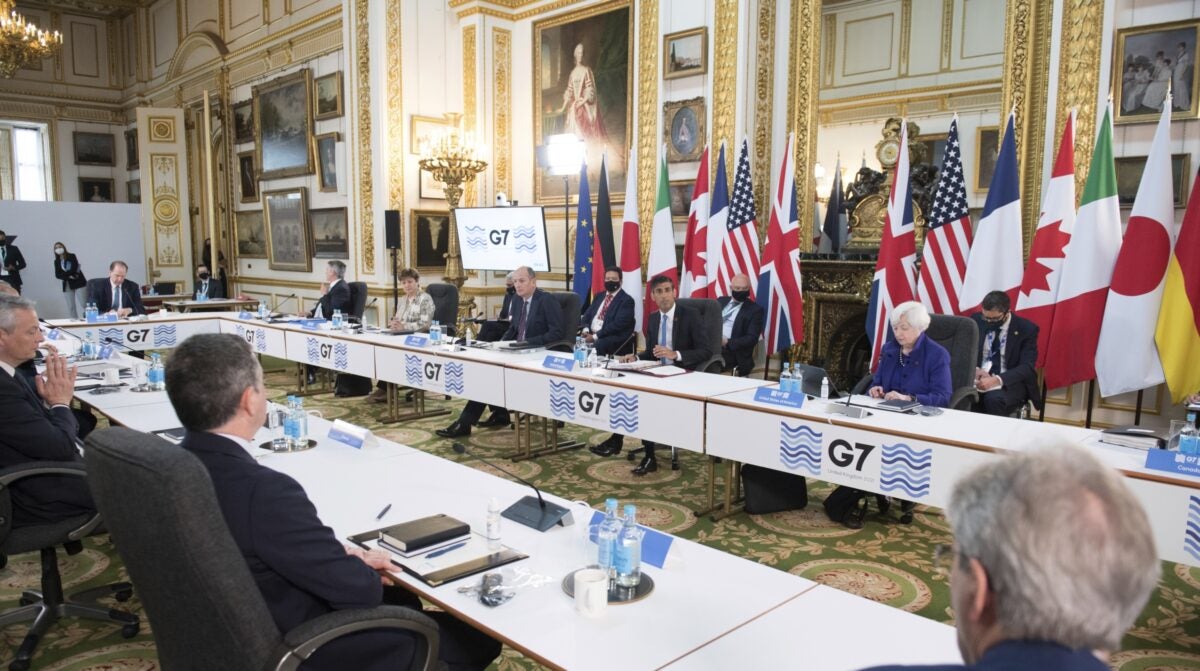Sanctions targeting Russian oil exports go into effect in just 10 weeks, on Dec. 5. From a practical perspective, sanctions come into play sooner than that. Tankers can take up to a month to reposition for cargo loadings. Refineries need to plan for deliveries well in advance.
The G-7 sanctions plan, which would cap Russian oil export prices, faces a big risk even before it gets off the ground: It hinges on the European Union changing its own sanctions policy and enacting its own price cap to match the G-7’s.
To change the sanctions, the EU vote has to be unanimous. Bloomberg reported Monday that Hungary and Cyprus are among those opposed to an EU price cap., said Bloomberg.
This raises the risk that the tanker industry will face an unworkable morass of conflicting G7 and EU sanctions regimes in the months ahead.
If so, there could be a shortage of tankers able to obtain insurance for carriage of Russian cargoes. The very outcome the U.S. is scrambling to avoid could come to pass. Russian exports could fall too far and too fast, causing rising prices for American consumers.
EU sanctions went too far
On June 3, the EU adopted its sixth set of sanctions targeting Russia. The EU agreed to ban seaborne imports of Russian crude on Dec. 5 and Russian products on Feb. 5. In addition, EU companies would be banned from providing services for Russian exports of crude and products to non-EU countries after those two dates, respectively.
With over 90% of tankers insured by service providers in the U.K. and EU, the fear was that the EU sanctions went too far and would effectively block most Russian exports. U.S. officials addressed this concern while speaking at the Capital Link New York Maritime Forum on Wednesday.
“We think [EU sanctions] were a well-intentioned policy to reduce the Kremlin’s revenues in the context of the war, but in our view, it would meaningfully reduce the flow of Russian oil into the global market,” said Erik Van Nostrand, senior advisor for Russia/Ukraine policy at the Treasury Department’s Office of Economic Policy.
G-7 ‘relief valve’ to EU sanctions
To fix that perceived flaw, G-7 countries agreed on Sept. 7 to set a cap on the price of Russian oil exports.
As with the EU plan, marine service providers in G-7 countries would be banned from facilitating Russian oil exports. However, the G-7 would allow its countries’ service providers — most importantly, U.K. marine insurers — to facilitate transport of Russian oil sold at or below a price cap set by the G-7.
“We view the price cap as an adjustment to the EU’s sixth sanctions package,” said Van Nostrand. “The goal is to allow oil to continue to flow. To keep energy affordable. But do so in a way that does not undermine the sixth sanctions’ goal of denying windfall profits to the Kremlin. What we’re doing mechanically is creating an exception to that ban on maritime services. The price cap is a relief valve for the sixth set of sanctions.”
What if EU doesn’t approve price cap?
But that relief valve won’t work properly unless EU sanctions are revised.
According to Michael Lieberman, assistant director for enforcement at the Office of Foreign Assets Control, “The idea is that the EU will adopt a cap similar to the G7. They will mirror each other.”

Van Nostrand said, “This will involve the reopening of the sixth set of sanctions. The exception for oil traded below the cap is the piece [of the EU sanctions] that needs to be changed.”
This is the exact proposal that’s now running into opposition from some EU members.
If the EU does not mirror the G-7 price cap by Dec. 5, crude-tanker cargoes that are “legal” under G-7 rules would run afoul of EU sanctions if service providers under EU jurisdiction were involved.
Most of the shipowner property and indemnity (P&I) insurance clubs are in the U.K., a member of the G-7, not the EU. But these P&I clubs are nonetheless exposed to EU sanctions.
According to guidance released by members of the International Group (IG) of P&I clubs, “Most of the clubs that comprise the IG are subject to the jurisdiction of the EU. All IG clubs, including those that are domiciled outside the territory of the EU, rely on a reinsurance program that is heavily dependent on the participation of reinsurers that are domiciled with the EU.”
Thus, U.K. marine insurers would face coverage restraints until EU sanctions are brought in line with the G-7’s. Because of the EU’s unanimous-vote rule, a single country such as Hungary — whose leader Viktor Orban is highly critical of Russian sanctions and has a contentious relationship with other EU officials — could theoretically stymie the G-7’s plan by refusing to back an EU price cap.
Click for more articles by Greg Miller
Related articles:
- Russian oil exports are still booming and EU is still reliant on Russia
- G7’s grand plan to squeeze Russia oil windfall hinges on tanker shipping
- Tankers could profit if US restricts gasoline and diesel exports
- War effect on crude trade: Long-lasting and just beginning
- How new EU sanctions on Russia will shake up global energy trade
- Tankers carrying diesel and gasoline rake in cash amid pain at the pump
- Russia tanker business is alive and well. Oil exports ‘remain strong’







